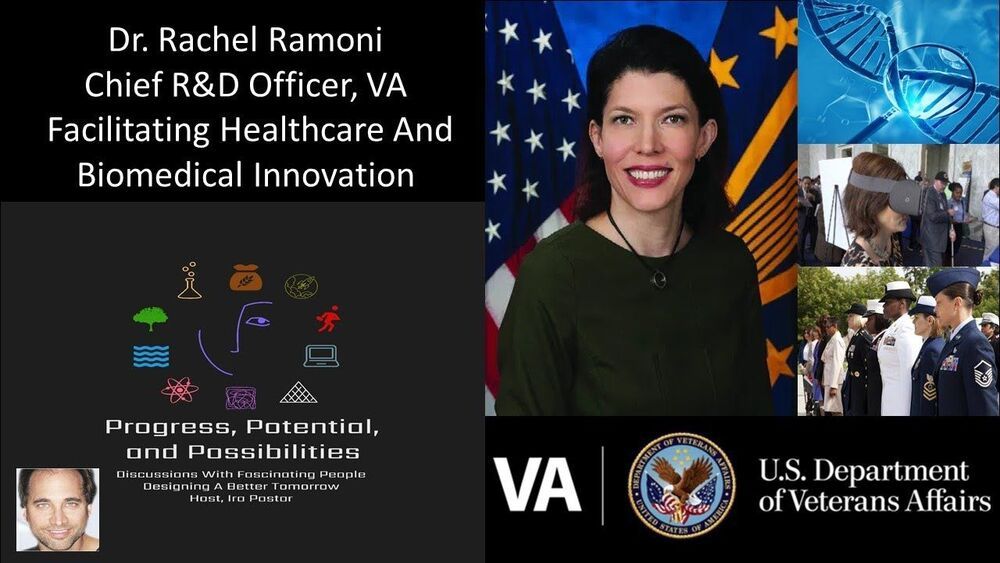Facilitating Novel Health-Tech and Bio-Medical Innovations For Over 9 Million Veterans — Dr. Rachel Ramoni, Chief of R&D, U.S. Department of Veterans Affairs.
Dr. Rachel Ramoni, is the Chief Research and Development Officer of the United States Department of Veterans Affairs (VA), where she oversees their nationwide research enterprise, encompassing some 2000 active projects, at more than 100 sites, with a total budget of $2 billion in both direct VA support, and research funding from outside entities such as the National Institutes of Health, other federal agencies, and nonprofit and private organizations.
The United States Department of Veterans Affairs (VA) is a federal Cabinet-level agency that provides comprehensive healthcare services to military veterans at over 1000 VA medical centers and outpatient clinics located throughout the US – It also provides several non-healthcare benefits including disability compensation, vocational rehabilitation, education assistance, home loans, and life insurance; and provides burial and memorial benefits to eligible veterans and family members.
The VA serves over 9 million enrolled Veterans each year, employs over 377000 people with an annual budget of $200 billion.
Dr. Ramoni earned a Doctor of Medicine in Dentistry degree from the Harvard School of Dental Medicine, as well as a Master of Science and Doctor of Science in epidemiology from the Harvard School of Public Health.
Dr. Ramoni was previously on the faculty at New York University College of Dentistry in the department of epidemiology and health promotion, and at Harvard Medical School in the department of biomedical informatics.
While at Harvard, Dr. Ramoni founded and led the Undiagnosed Diseases Network (UDN) Coordinating Center, which was funded by the National Institutes of Health, and brings together clinical and research experts from across the U.S. to solve challenging medical mysteries using advanced technologies.
Among Dr. Ramoni’s research interests are informatics, genomics, and precision medicine. Prior to her role with the UDN, she was executive director of the Substitutable Medical Applications, Reusable Technologies project, or SMART. Initially launched with federal funding, SMART aims to make it easier for providers across different health systems to securely share information from electronic health records. The overarching goal is to improve the quality and continuity of care for patients.
